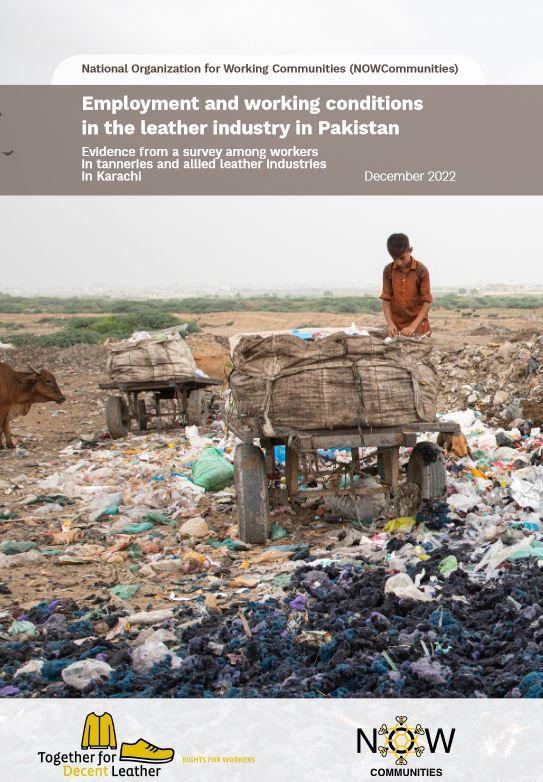Employment and working conditions in the leather industry in Pakistan
Evidence from a survey among workers in tanneries and allied leather industries in Karachi

Work in Pakistan’s leather industry is precarious and exploitative, with little accountability on the part of the government, tanneries and factories, even though Pakistan is a significant exporter of leather goods to European and North American markets. This is the main conclusion of research by the Karachi-based NGO NOW Communities. Over 150 workers were interviewed in the little-researched Pakistan leather sector. Many leather workers, mainly illiterate or poorly educated men, are afraid to speak about their work and living conditions. The workforce in the Pakistan leather sector comprises mainly men from low-income extended family households that lack running water and other basic services. Most interviewed men had spent all or most of their working lives in the leather industry, yet few had permanent employment, and many had no documentation regarding their employment. The basic wages are low. Overtime was standard, but very badly paid. Very few employers provided non-monetary benefits such as transport, food rations, an on-workplace dispensary, first aid, medical check-ups, or health insurance.
The report offers a series of recommendations to various actors. As a priority, NOWC and Together for Decent Leather are calling upon international buyers and retailers sourcing leather and leather goods in Pakistan to provide full supply chain transparency, including suppliers of raw materials, tanneries and all types of manufacturers, enabling labour rights organisations in Pakistan and internationally to monitor buyer–supplier relations. Buyers should also apply fair purchasing practices to enable suppliers to create better labour conditions for leather workers in line with the highest international business and human rights standards.
This paper was created with the financial support of the European Union and various other funders, including the Netherlands Enterprise Agency (Rijksdienst voor Ondernemend Nederland) and Mondiaal FNV. Its contents are the sole responsibility of the authors of the Decent Leather consortium and do not necessarily reflect the views of the European Union or the other funders.